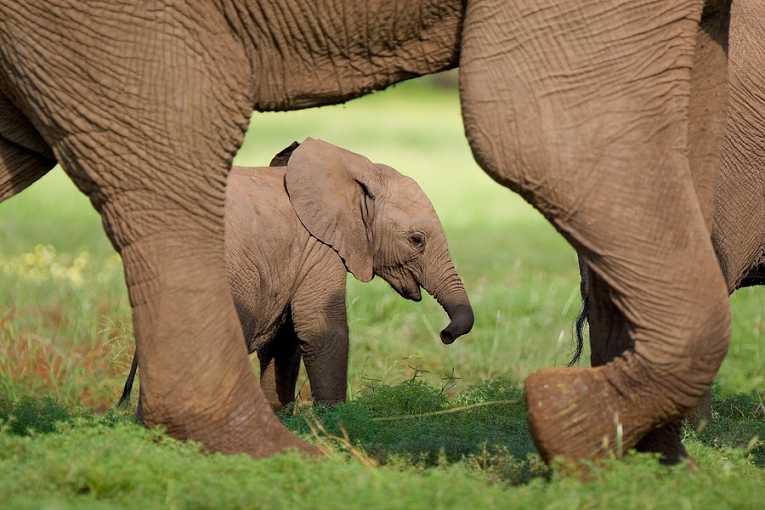Forest elephants in Cote d'Ivoire are still under threat from poaching despite a worldwide ban on the sale of ivory, a new WWF study has revealed.
Researchers from WWF and the Convention on International Trade in Endangered Species (CITES) initially set out to determine the numbers of forest elephants in Cote d'Ivoire's Tai National Park. Whilst the researchers were carrying out the survey, they found signs of poaching, including gunfire, snares and poachers' camps. The study, the first reliable forest elephant estimate in nearly 30 years, suggests that around 189 forest elephants are now living in the park. This is down from an estimate of 800 at the last count.
As forest elephants are reclusive and adept at hiding amongst their forest habitat, researchers resorted to counting dung piles across the park to estimate how many elephants were living in the forest. Although this is the best method available to estimate forest elephant population, the researchers caution that the margin for error in these type of surveys is quite large. At the extremes, could be as few as 54 forest elephants or as many as 324. Nonetheless, even 324 individuals would represent a decline of over 50% in three decades.
"In addition to establishing the number of elephants, the survey also gives us insights into the animals' distribution within the park," says Mr. Lamine Sebogo, WWF African Elephant Programme Coordinator. "We found that the elephants are avoiding areas frequented by poaching gangs and are congregating near water sources."
Elephant populations across West Africa have decreased dramatically and the population living in Cote d'Ivoire's Tai National Park is no exception. Poaching for ivory, habitat loss and conflict with farmers and villagers all play their part in the sad decline of a species that once stretched across a huge range.
One possible solution to the problem of poaching would be to increase the number of park rangers present, as the researchers found that poaching activity was greatest in areas that are infrequently patrolled. However, Cote d'Ivoire is currently in the middle of a civil war and it may be some time before conservation is high on the government's priorities. As is often the way, it will fall to already over-stretched conservation charities to find the cash to protect the forest elephants adequately. The researchers found that the area around a chimpanzee habituation programme in the National Park was a "no-go" area for poachers, most likely due to the daily presence of conservation staff. Conservation projects, such as WWF's chimpanzee programme, have beneficial effects beyond the species they initially set out to protect.
Lamine Sebogo says "Tai is one of West Africa's most important wildlife refuges. To protect the elephants, chimpanzees and other species living there we must secure the park from poachers. To do this, increased funding and support from the international community is needed."
Top Image Credit: Elephant and calf © Villiers Steyn










